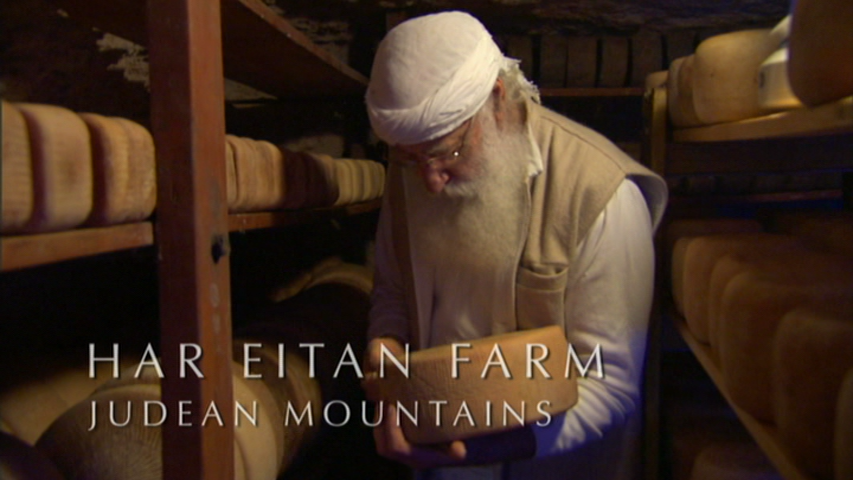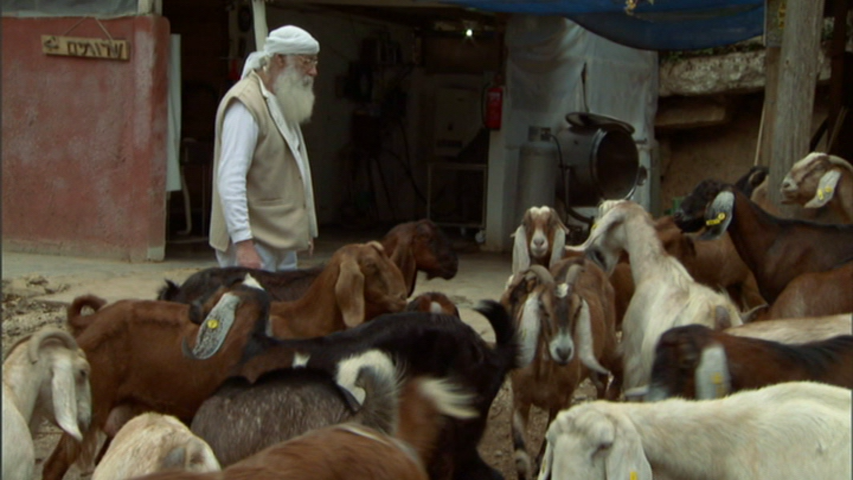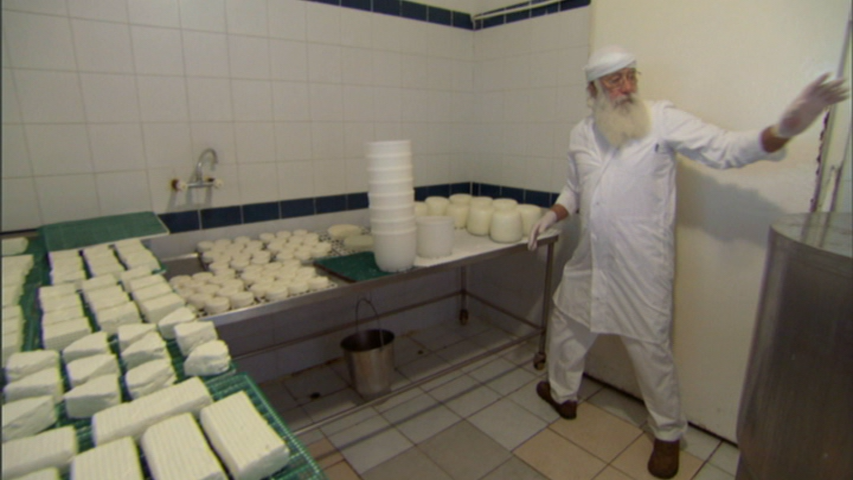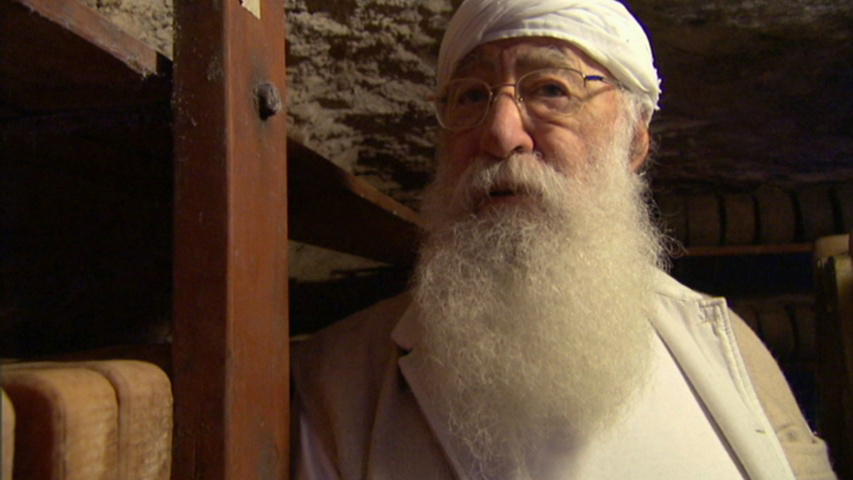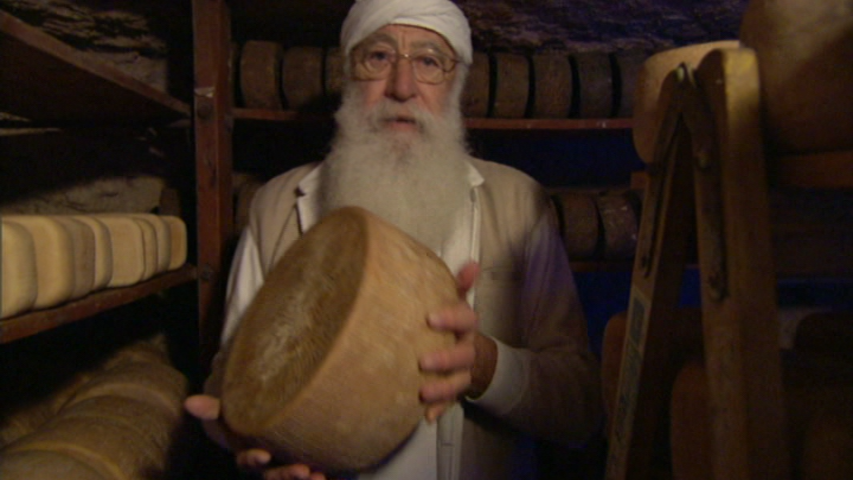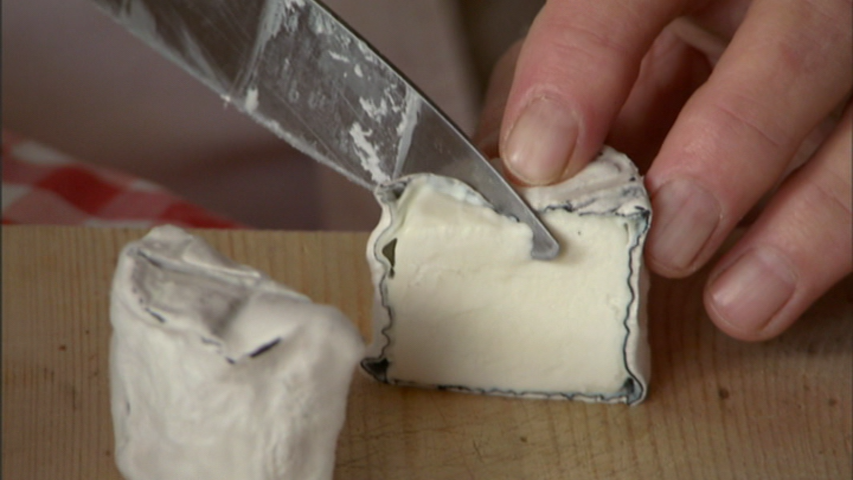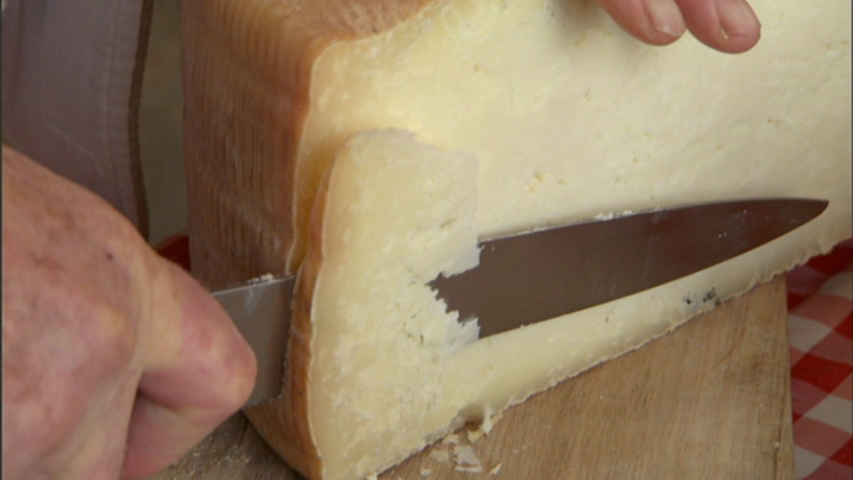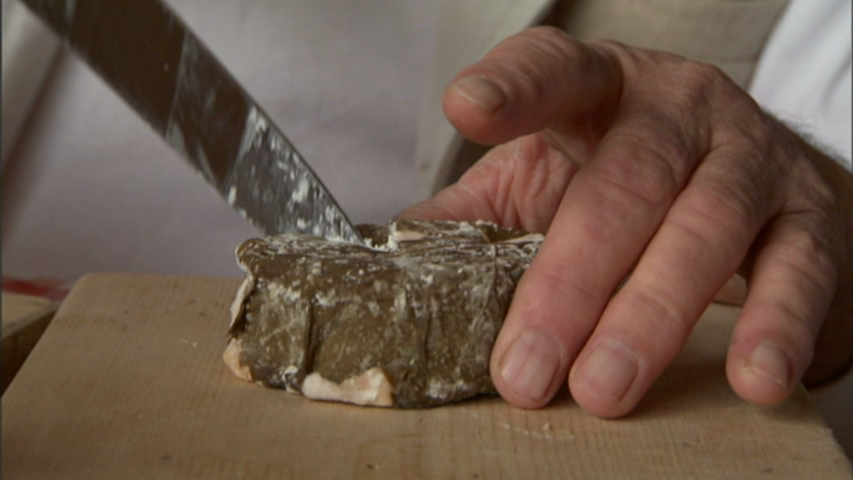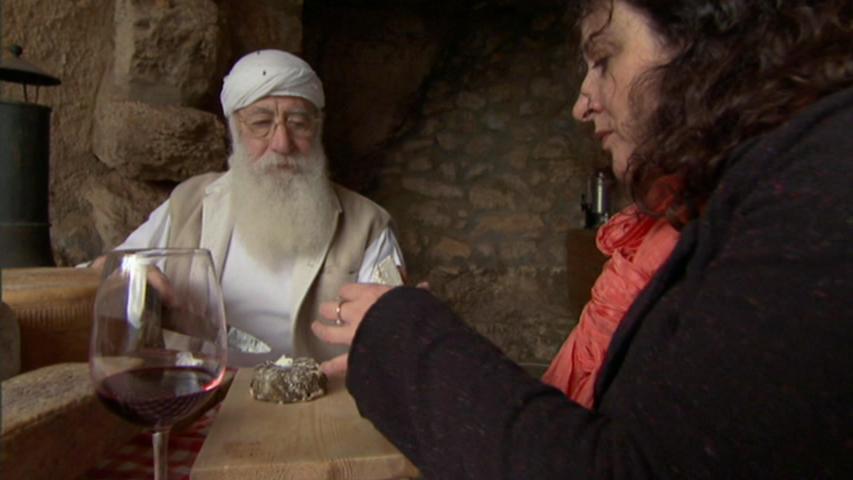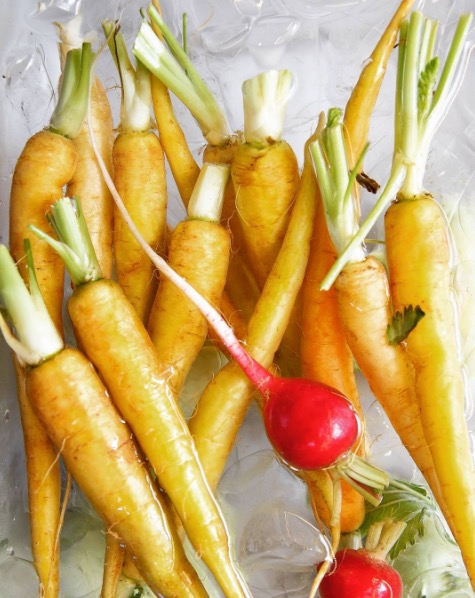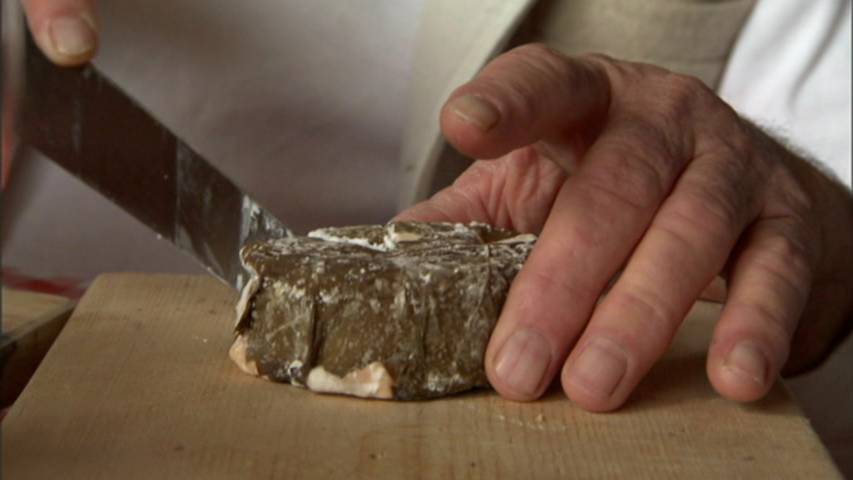Shai Seltzer's Har Eitan Farm goat cheeses. Photo by and © Vision Studio
Har Eitan Farm and cheese caves are west of Jerusalem, down the eastern slope of Mount Eitan near the Sataf Springs, at the end of a long and rubbly dirt road, dotted with small placards with images of goats on them.
Like any good alchemist, cheesemaker Shai Seltzer works magic on a regular basis: changing the milk of his Anglo-Nubian crossbred goats into dozens of varieties of pungent cheeses, from the mildest, creamy little crottin disks to big-flavored, crumbly, wizened wheels that are aged for up to five years. Some kinds are wrapped in grape leaves or coated in ash; two are named for his daughters, Michal and Tom; and all are ripened in a natural limestone cave on the farm.
“Shai’s goats have space, shelter, and a beautiful view of the Eitan Valley, and they are well fed on healthy grasses and greens that help them generate the elixir that is their milk.”
Visit Har Eitan and you will find yourself sitting at a small table under a massive stone overhang: this is the front porch of the cave in which these gastronomic miracles happen. If you are lucky, Shai might let you have a peek into the stone chamber where the affinage takes place: a cool, dark space lined with shelves stocked with patient tommes and the aroma of goat-cheese paradise.
His animals are clearly happy. They have space, shelter, and a beautiful view of the Eitan Valley, and they are well fed on healthy grasses and greens that help them generate the elixir that is their milk. Shai chats with them in Hebrew, which, naturally, they understand. “Yes, they speak Hebrew,” he says. “But the main thing they do is laugh. All the time, they are laughing!”
Shai’s great talents attract regular visitors, although his enclave is not advertised to the world. There is something quietly thrilling about discovering a hidden gem like this, and Israel is studded with them from top to bottom.
Stills from the film The New Cuisine of Israel, available with the purchase of The Desert and the Cities Sing: Discovering Today’s Israel.


